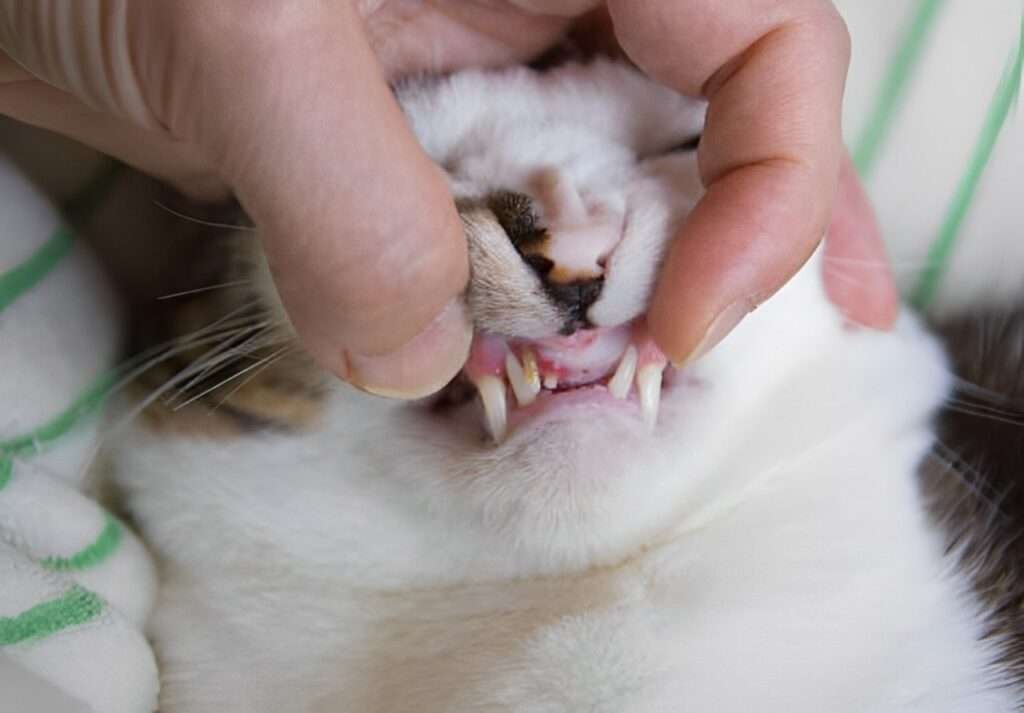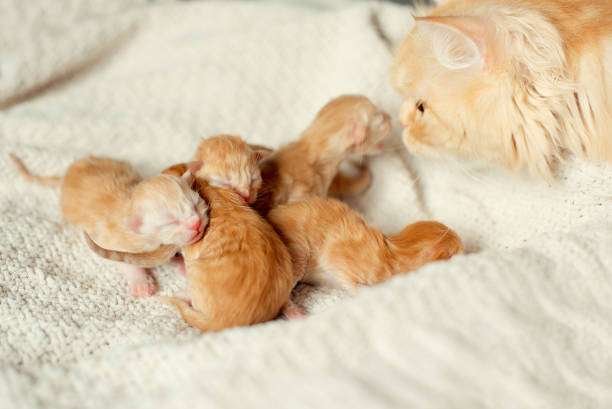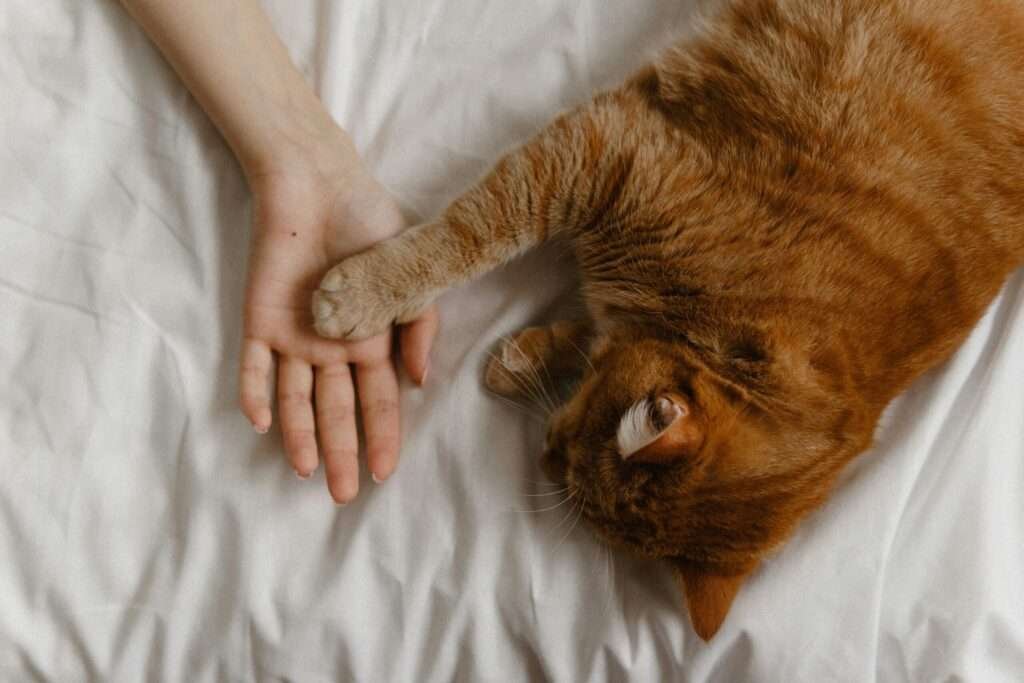Keeping your cat’s teeth healthy is very important for their overall health. Just like people, cats can have dental problems that can make eating painful and affect their health. Good dental care can help avoid problems like plaque, gum disease, and other serious issues. This guide will explain how to take care of your cat’s teeth, spot dental problems, and tips for brushing and maintaining their oral health.

Table of Contents
ToggleWhy Dental Health Is Important
Healthy teeth and gums are important for your cat’s life. Cats use their teeth for many things:
-
- Eating: Cats need strong teeth to chew their food properly. If their teeth hurt, eating can be hard and painful.
-
- Hunting and Playing: Even indoor cats use their teeth for playing and pretending to hunt.
-
- Grooming: Cats use their teeth to clean themselves and keep their fur neat.
If there are dental problems, they can cause serious issues. Plaque and tartar can lead to gum disease and tooth loss, causing pain. In severe cases, bacteria from dental problems can enter the bloodstream and hurt other organs like the heart and kidneys.

How Common Is Dental Disease?
Dental problems are common in cats, especially as they get older. Studies show that about 85% of cats over 3 years old have some dental issues. Signs of dental disease can be hard to notice, so regular vet visits are important for early detection and treatment.
How to Spot Dental Problems
Signs Your Cat Might Have Dental Problems
Watch for these signs that your cat might have dental issues:
-
- Bad Breath: If your cat has persistent bad breath, it could be a sign of dental disease.
-
- Trouble Eating: If your cat has trouble chewing or drops food, it might be due to dental pain.
-
- Less Appetite: Cats might eat less if their teeth or gums hurt.
-
- Behavior Changes: Pain from dental issues can make a cat more irritable or shy.
-
- Red or Bleeding Gums: Healthy gums are pink and firm. If they are red or bleeding, it might mean gum disease or other problems.
Regular Vet Visits
Regular vet visits are important for keeping your cat’s teeth healthy. Your vet will check your cat’s mouth carefully and might suggest professional cleanings to handle and prevent dental problems. These visits help catch any issues early, which might not be visible at home.

How to Brush Your Cat’s Teeth
Getting Started with Brushing
Brushing your cat’s teeth might seem hard, but with patience, it can become a part of their routine.
Choose the Right Products
Use toothpaste made for cats. It comes in flavors like chicken or fish. Human toothpaste can be harmful to cats.
Get a cat toothbrush.
There are different kinds, like finger brushes and regular brushes. Choose one that you find easy to use.
Introducing Toothpaste
Let your cat taste the toothpaste first. Put a little on your finger and let them lick it. Do this for a few days to get them used to the taste.
Introducing the Toothbrush
Once your cat likes the toothpaste, put it on the toothbrush. Let them sniff and lick the brush to get used to it.
Getting Used to the Toothbrush
Gently lift your cat’s lips and put the toothbrush on their teeth for a few seconds. Praise and pet them after each try to make it a positive experience.
When your cat is comfortable with the brush, start brushing their teeth. Hold the brush at a 45-degree angle and clean along the gum line. Brush gently to avoid hurting them.
Try to brush your cat’s teeth at the same time each day to make it a habit. If you can’t brush daily, aim for at least once a week. Reward your cat with treats and praise to make brushing a positive experience.
If Brushing Is Too Hard
If brushing every day isn’t possible, try these other products to help with dental health:
-
- Dental Gels: These gels can be put on your cat’s teeth to help break down plaque without brushing.
-
- Dental Wipes: These wipes help remove plaque and food particles, similar to brushing.
-
- Water Additives: Adding a special solution to your cat’s water can help reduce plaque buildup.
-
- Dental Treats: Some treats help clean your cat’s teeth as they chew.
Preventing Dental Disease
-
- Diet and Nutrition: Feed your cat a balanced diet that supports overall health, including their teeth. Some foods are made to reduce plaque and tartar.
-
- Avoid Table Scraps: Don’t give your cat table scraps or human food, as these can lead to dental problems.
-
- Chew Toys: Give your cat safe chew toys to help clean their teeth naturally. Rubber toys and special dental toys can be helpful.
-
- Professional Cleanings: Schedule regular cleanings with your vet to remove plaque and tartar that can’t be cleaned at home. These cleanings usually need anesthesia but are important for keeping teeth healthy.
Final Words
Taking care of your cat’s teeth is very important for their overall health. Regular brushing, using dental products, and scheduling professional cleanings can help prevent dental problems and keep your cat happy. Start early and be patient to make dental care a positive part of your cat’s routine. If you have any worries or questions about your cat’s dental health, talk to your vet for advice and help. Good dental care is key to keeping your cat healthy and content.
FAQ: Cat Dental Care
1. Why is dental health important for cats?
Healthy teeth help your cat eat, play, and groom without pain.
2. How common are dental problems in cats?
Dental problems are common, especially in cats over 3 years old.
3. What signs show that my cat might have dental issues?
Look for bad breath, trouble eating, or red gums.
4. How often should I brush my cat’s teeth?
Try to brush their teeth every day or at least once a week.
5. What toothpaste should I use for my cat?
Use toothpaste made for cats, not human toothpaste.
6. What if my cat won’t let me brush their teeth?
You can use dental gels, wipes, or water additives instead.
7. Are there any foods that help with dental health?
Yes, some cat foods are made to reduce plaque and tartar.
8. Can chew toys help keep my cat’s teeth clean?
Yes, safe chew toys can help clean their teeth naturally.
9. How often should my cat get professional dental cleanings?
Your vet might recommend regular cleanings, usually once a year.
10. What should I do if I’m worried about my cat’s teeth?
Talk to your vet if you notice any problems or have concerns.



